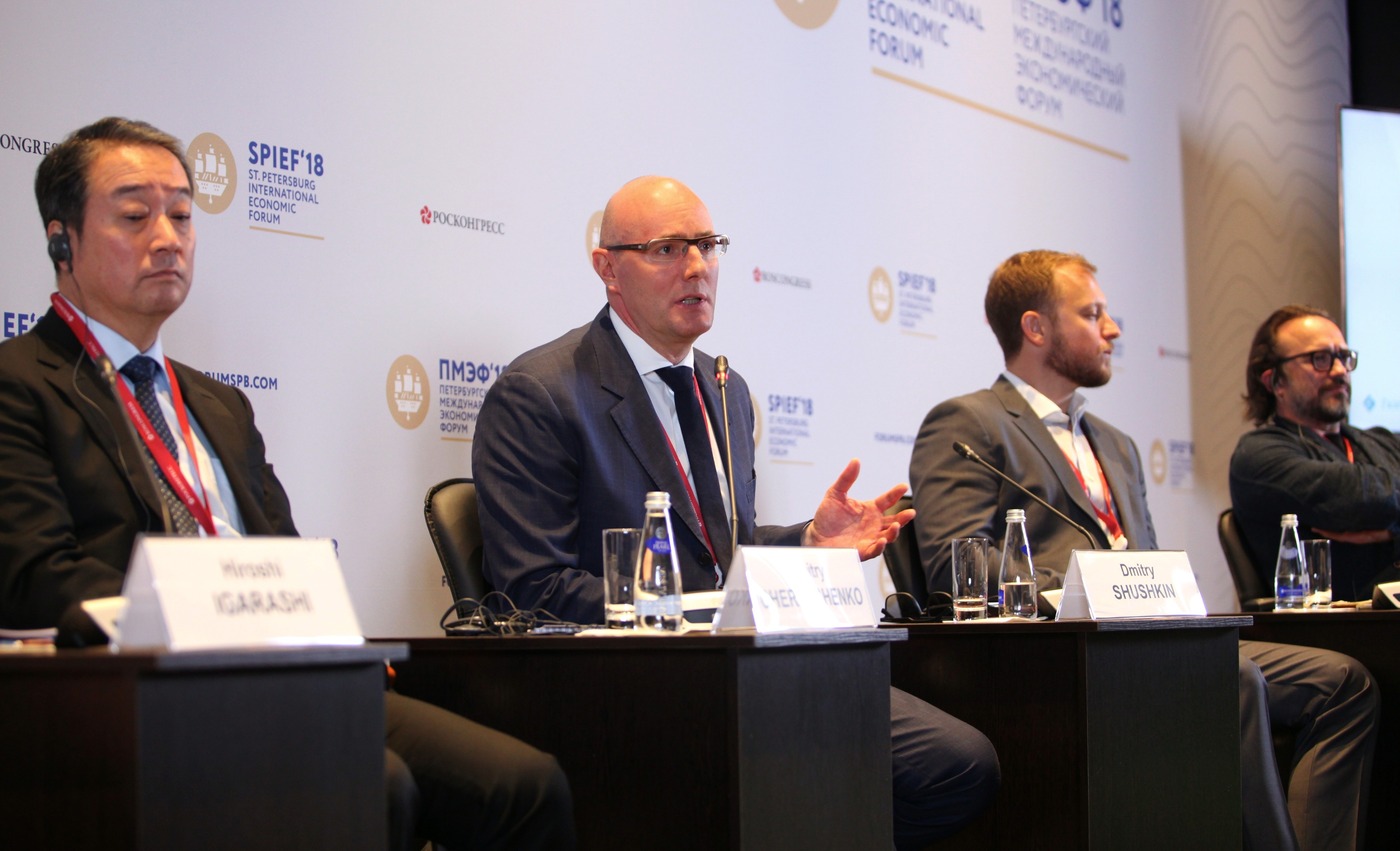The discussion panel “Media in the age of artificial intelligence” took part on May 24 as part of the business program at the St. Petersburg International Economic Forum. Gazprom-Media Holding organized the event with the support of SKOLKOVO business school.
Taking part in the discussion were experts from Russia, Japan and USA: futurologist and author of the book Rise of the Robots: Technology and the Threat of a Jobless Future Martin Ford, CEO of Gazprom-Media Holding Dmitry Chernyshenko, vice-president of the Japanese advertising-communications holding Dentsu Inc. Hiroshi Igarashi, actor and director Vincent Perez. Other speakers at the event included the general manager of ABBYY Russia Dmitry Shushkin, Yandez technology distribution director Grigory Bakunov, co-founder of DigitalGenius Dmitry Aksyonov. The president of SKOLKOVO business school Andrey Sharonov moderated the discussion.
The futurologist Martin Ford predicted that in the next 20 years artificial intelligence will have a strong impact on life, not only transforming science, medicine and transport, but also jeopardizing jobs.
“We thought that robots would replace ‘blue collar’ jobs, but we need to look beyond that. Automatization is already making it possible to replace the more qualified workers - lawyers, accountants, financial advisors,” he said.
Speaking about the media market and the future of media companies, Martin Ford noted that while artificial intelligence will affect routine processes, robots will not replace people in the creation of unique ideas just yet.
CEO of Gazprom-Media Dmitry Chernyshenko agreed with the futurologist and talked about the possibilities of using modern technologies and artificial intelligence in the media business. He emphasized that in the near future robots will not be able to replace people in creative endeavours.
“Creating strong ideas remains the prerogative of human beings. We do not yet see artificial intelligence making something creative. We don’t see empathy or emotions in it,” said Dmitry Chernyshenko.
He underlined the importance of ethical standards in the media. “We may not be able to understand the rules that are created inside the ‘black boxes’ of artificial intelligence. As far as media is concerned, they must form ethical standards.”
According to him, the media must create their own powerful brands in order to remain competitive and maintain an audience.
The vice-president of Dentsu Inc. Hiroshi Igarashi shared his prediction that robots will replace 47% of the jobs in the next 10 to 20 years.
“The use of artificial intelligence allows to do things that are impossible for the average person. For example, in our company a worker produces up to 100 texts in five minutes with the help of a robot-copywriter. We use artificial intelligence to predict TV ratings and audience behaviour,” said Hiroshi Igarashi.
The actor and director Vincent Perez noted that he sees great opportunities in the use of artificial intelligence in the film industry. However, he reminded the listeners that the production of films is a creative process that does not always follow an algorithm.
“The director searches within his own soul for an idea for a script,” he said.
